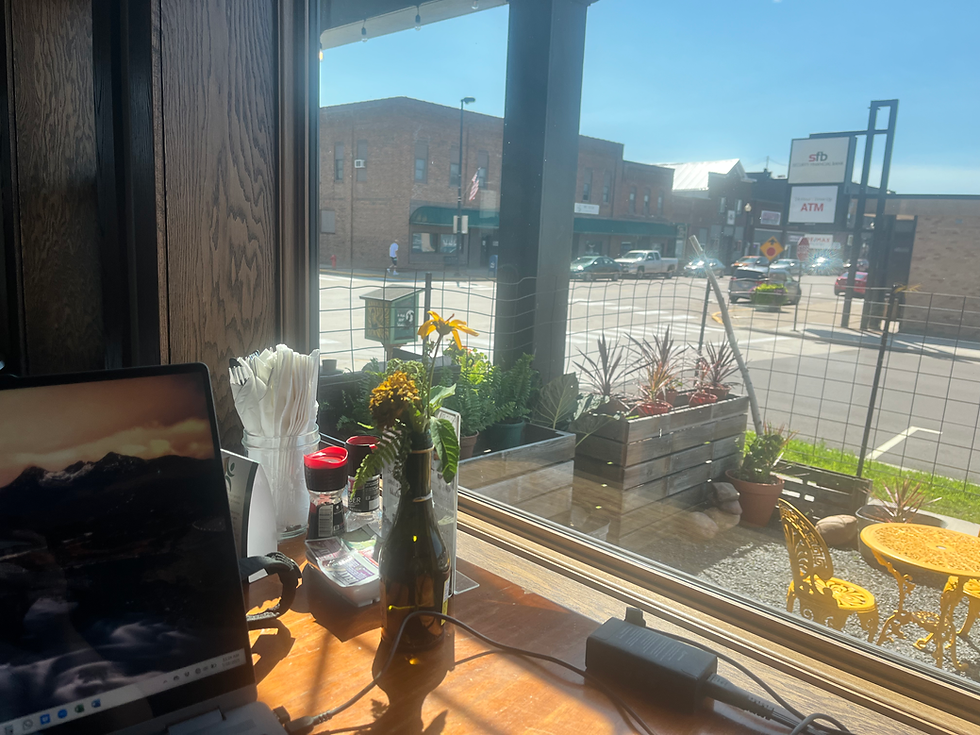From Writer to Coach-Style Editor
- Dieta Scheidecker
- Oct 26, 2025
- 3 min read
No one was more surprised than me when I finished my first book. After so many false starts, I wondered if this one would end up on the unfinished pile too. But something felt different. The vision and drive weren’t the same as before. There were things I knew about this story that had to be written. I felt the mandate from God.
But the truth is, I had no idea what I was doing. What I had written was okay—solid characters, believable dialogue—but there was still a lot of room for improvement. With the things I was doing right, I didn’t understand why they worked. And the things I was doing wrong, I didn’t understand why they didn’t.
It was through the process of learning how to edit my own book that I truly learned how to write. Each round of edits became another lesson. I’d read a blog post, study an article, and search for websites on editing, then apply the concepts, chapter by chapter. When I thought I had it right, I’d learn something else and go through the story again.
I edited that manuscript for just over a year. Every pass taught me something new—not just about writing, but about clarity, structure, and intention. I began to understand the choices behind the words.
I’ll be honest. When I first started, I thought editing was the worst thing ever. How many times can a person read through their story and make it better? When is it enough?
Somewhere in the middle of that long process, something shifted. It became a challenge to learn a new thing and then see where I needed to apply it. The revisions became less about rewriting, and more about refining. I realized I loved the editing part just as much as the writing itself.
As I learned to edit, I started noticing the same patterns in other people’s writing that I had struggled with myself. Friends would ask me to read their work, and I found myself explaining not just what to change, but why it mattered. I realized that my strength wasn’t only in spotting problems—it was in helping others see their own writing more clearly.
That realization changed everything.
What began as a standard editing approach (what is taught in school) naturally grew into something different. I couldn’t just fix words and move on; I wanted to teach the process behind the changes. I started blending developmental and line editing with coaching; guiding writers through the “why” so they could apply what they learned to every page.
It isn’t the traditional way, and it won’t be for everyone. And it's not the final edit needed for publishing—it's the first steps. For those who want to grow, it’s empowering. They learn to edit with purpose, to recognize their own strengths and weaknesses, and to refine their voice instead of losing it in the process.
And there’s another benefit: understanding the “why” behind each edit doesn’t just make a better story—it makes the writer better. Authors who learn the craft along the way need fewer rounds of revision later, which means they save both time and money. It shortens the path between first draft and finished book while strengthening every word along the way.
Over time, I’ve seen how this approach transforms writers. The confidence that builds with each revision and the satisfaction of seeing their story sharpen and come alive.
For me, editing isn’t just a service: it’s a form of ministry. Helping writers find their voice, believe in their message, and carry it forward is deeply personal. I see it as coming alongside others to help them share the stories they were created to tell.
Every writer starts with a spark: an idea, a dream, a story that won’t leave them alone. My job is to help that spark grow into something lasting. I know how it feels to doubt your words, to stare at a page and wonder if it’s good enough. I’ve been there.
I believe writers learn best when they feel supported and encouraged. When they understand the “why,” they gain confidence not only in their story, but in their own ability to shape it.
This is what fuels Spoken Flame Company. The belief that stories can be refined, writers can grow, and that the fire within them is meant to reach others.
We aren't meant to carry the flames alone.







Comments